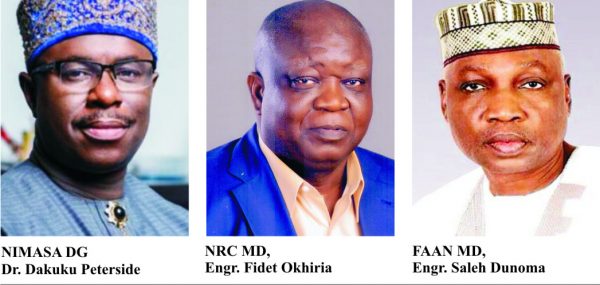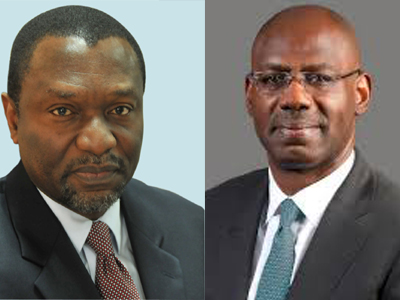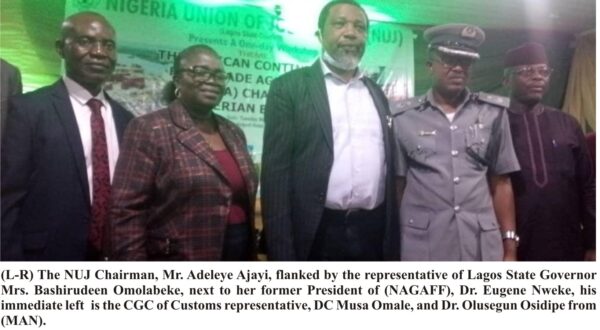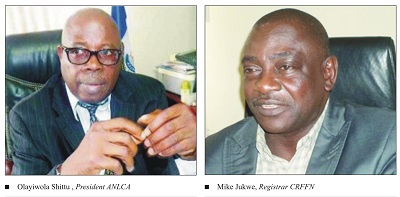Battling The Challenges Facing Nigeria’s Trade, Export Drive

A few days ago, the Director General, National Agency for Food and Drug Administration and Control (NAFDAC), Prof. Mojisola Adeyeye lamented that over 70 per cent of food exports from Nigeria are rejected abroad, with huge financial losses to exporters and the country and also depriving the country of the much-required foreign exchange.
This development was condemned by Mrs Olufunmilayo Olotu, the former Port Manager of Lagos Port Complex, who lamented the stigma associated with Nigeria’s exported products abroad.
She blamed this on perception and reputational issues as many products coming from Nigeria are often regarded as substandard.
“I was in a meeting with the British Envoy and when I raise this same issue of trade imbalance, you know what he told me? Go and work on your reputational deficiency.
If anything comes from Nigeria as an export and it’s carrying that brand Nigeria it comes with a question mark but when the same commodity, the same cargo is now taken through any of our neighbouring countries and ports and you now remove that label of Nigeria and you assume their own label it is accepted.
And of course, they knew the origin of the cargo is actually Nigeria. So, my charge to everyone out there, when you are talking about integrity you all need to work and when we are talking about our national brand you all need to work.
We need to make them stop seeing us as a country where anything goes, let’s begin to bring professionalism into what we do, transparency, integrity, see ourselves as that Nigerian that can make a difference, in any encounter you have, make the best of it and am sure by and large with the new government we will be able to get to that level” she told MMS Plus.
Toeing a slightly different line, the Customs Area Controller, KLT Command, Nigeria Customs Service (NSC), Comptroller Timi Bomodi, blamed Nigeria’s low export status for a lack of infrastructure to support export.
He noted that the export potentials of Nigeria are huge but that the information/data, internal logistics system, payment platforms, standards and other infrastructure needed to sustain export were lacking.
“For export to thrive, Nigerians need information on goods to export. But there is a lack of information; the internal logistics system is not efficient.
“Payment platforms are not in existence. Export potentials are huge in Nigeria but where is the infrastructure to support it?” asked Bomodi.
Speaking to MMS Plus on the issue, Muda Yusuf, Director/Chief Executive Officer, Centre For The Promotion Of Private Enterprise [CPPE] fingered the inability of repatriating proceeds from exports as one of the reasons why many exporters would prefer to export their products from neighbouring countries.
He also described the process of exporting from Nigeria as being very tedious which is not the same in neighbouring African countries like Ghana, and the Republic of Benin, a development which he said makes exporters prefer these African countries against Nigeria.
He reserved harsh criticism for the suspended Central Bank of Nigeria’s Governor, Godwin Emefiele for the challenge encountered due to the Nigeria Export Proceeds Form (NXP) policy.
As provided in the CBN’s Revised Foreign Exchange Manual, 2018 (the Revised FX Manual), any person intending to export any product from Nigeria shall, in the first instance, process the Nigerian Export Proceeds Form (generally known as Form NXP) through an authorised dealer bank, irrespective of the value and whether or not payment is involved.
Through this policy, export proceeds are expected to be offered to the importers and exporters at a determined exchange rate.
Yusuf described the NXP policy as one that is unfair to exporters which as a result has forced many exporters to be reluctant in in completing the NXP form for the declaration of export proceeds.
“The repartition of the export proceeds when Emefiele was there also affected. When you export, you have to fill out a form called NXP Form, which means that your proceeds must come into the banking system, and when your proceeds come it will be converted for you at N460/$1.
Although he said he has introduced what they call RP 200. But that is not enough compensation because if you can sell your dollar at N720 or N730/$1 and the CBN is saying that the bank should give you N460/$1, the exporter will rather take his products to Cotonou or Ghana, get his dollar and come and exchange it here at the parallel market rate, however, the harmonization of the various windows is addressing this.
So, that was also a problem that was created by government policy. It was forcing many exporters not to want to declare their export.
He called on Nigeria to ensure the required regulatory oversight is put in place if the country is to achieve its export drive.’’
“If we can work on the quality of products going out of the country, gradually, the reputation will be returned.
In other words, our recognition as a country from which quality products are exported will be resolved. But it will take time because the only way you can prove to them that things are better is when you export quality products.
So, it’s for us as a country to work a lot more on this issue of quality and standardization. And, it will require the government and regulatory agencies to do better.
Muda posited that diversifying the country’s economy through the export of even refined oil refined products has the potential to drive growth in the country.
“First of all, even from oil, you can diversify from crude oil into refined petroleum products, into petrochemicals, into fertilizer, and into gas.
That’s a lot of money to be made from there. So, we can’t just walk away from oil. Oil has huge potential. So, what you should be talking about is moving away from just the line of crude oil into other aspects of oil and gas. It has a lot of potential. I mean, you know what the demand for gas is now across the world?
A lot of money. You can leverage the revenue you get from that to support other sectors like Dubai and the rest of the world have done.
The revenue is made from that you can use to build infrastructure which will now help your agriculture, help your manufacturing, and improve productivity in the economy” he added.
Rather than focusing on the exportation of products, Muda has a different opinion, he opined that there is a lot more revenue to be made from service exports other than products export.
“Then, of course, there is also the services export. People complain about people leaving for the diaspora, but it is also a part of exports.
People can go out there and do some work and bring some money. Diaspora remittances are over $20bn annually, there was a time it was as high as $25bn
How many non-oil exports can give you such revenue? So, we should encourage a lot more of services export.
Our sports, entertainment and creative sectors are areas we are doing so well that government can go on to structure properly. Exports is not only in tangible products, so, we should package all these things very well.
Do you know that there is a scarcity of truck drivers abroad, they can earn as much as $10, 000 per month, yet, most of our truck drivers here are sleeping under the bridge, these are potentials that the government can harness. Who says we cannot export our artisans like plumbers, electricians, mechanics and others like the Philippines are doing?
The Phillippines export those who help on shipbuilding and the likes, so, we have to be a lot more creative and think outside the box, it is not everything that we have to be carrying containers, things are changing” he added.
To make Nigerian agricultural products accepted for export, Bomodi says NAFDAC and the Standards Organisation of Nigeria (SON) have a lot of work to do.
He urged NAFDAC to rather than focusing on being in the ports, should head into the markets where a lot of atrocities are being carried out.
“Now who is in charge of foods and drugs administration, NAFDAC right? NAFDAC spends more time in the port than they spend in the Ajegunle market; they spend Oshodi market, than they spend in the Oyingbo market.
“Why is it like that? Think about it, it is food. We have reports today that a lot of foods that are being consumed in this country are contaminated, and high in insecticides; the volume of insecticides, and pesticides in these farm products is extremely high and it is not fit for human consumption. And nobody is talking about it,” he noted.
Speaking on factors that can boost trade and export in the axis, the Customs Area Controller of Seme Command, Nigeria Customs Service, Comptroller Dera Nnadi called for the timely completion of the highway to boost trade.
“Abidjan-Lagos Corridor is an important corridor for trade among West African countries, a melting point where our people share culture and religion. It is a very important place where we maintain relationships and peace with ourselves. It is important to keep the corridor alive. We appreciate ECOWAS for its contribution to the growth of business in the corridor.
“While we appreciate the Federal Ministry of Transportation for the ongoing rehabilitation of the highway, if the road is complete, it will improve trade” he added.







